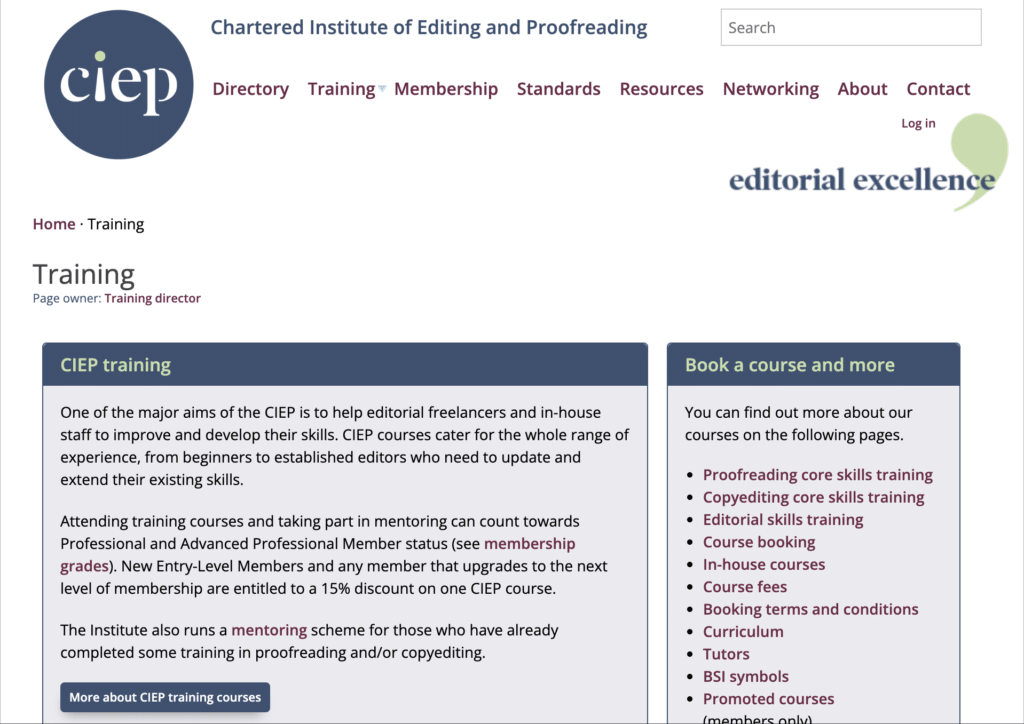To become a pro in copyediting freelance, you need to work on a few key skills. One is refining your editing skill. Another is building a solid relationship with clients. Lastly, managing a business is crucial. It’s not just about fixing grammar errors. You must handle the language’s complexity and understand the freelance market.
Want to know more?
For a more detailed guide on being a successful freelance copyeditor, read the article below.
Key Takeaways
- Understanding the foundational aspects of freelance copy editing.
- Equipping yourself with essential tools like Microsoft Word for editing tasks.
- Valuing authentic courses and personal tutors for career development.
- Using professional software to align with industry standards in copyediting freelance.
- Identifying a niche to specialize and build expertise as a freelance editor.
- Creating a robust portfolio to showcase your skills as a freelance writer and editor.
- Navigating rate negotiation and client acquisition to secure a steady flow of copy editing jobs.
Embarking on a Copyediting Freelance Career

Starting a freelance copy editing career is an insightful journey that teaches valuable lessons along the way. Editing makes writing clearer and ensures it’s consistent. Now, let’s see what you need to start strong in this area.
Understanding the Basics of Copyediting
Copyediting is about being detail-oriented and loving language. You should always adhere to the main rules of copyediting, which will keep you on track. Being part of the American Copy Editors Society will also helped you grow. It’s about having an eye for detail and a passion for language.
Equipping Yourself with the Right Tools
Having the right tools is key for a freelance editor. I use Microsoft Word & Grammarly app a lot for tracking edits. It helps me work better with people from anywhere. But it’s not just about software. It’s how you use the tools that matters.
Personal Tutors & Online Support
Getting better at freelancing often means getting personal help. Mentors and online resources have been vital for my freelancing journey. They’ve taken my skills to new heights. If I need advice, I can always reach out to my freelance network.
Here’s a snapshot of the tools and support systems I’ve found invaluable in my career for writing or editing purposes:
| Resource | Type | Role in My Freelance Career | Benefits |
| Microsoft Word | Software | Editing and Collaboration | Facilitates track changes, comments, and effective collaboration with clients |
| The American Copy Editors Society | Professional Organization | Networking and Development | Offers a platform for learning, networking, and professional growth |
| Online Courses | Educational | Skill Enhancement | Provides theoretical foundations and practical tutorials |
| Personal Tutors | Mentorship | Specialized Guidance | Offers dedicated support and feedback to hone my editing craft |
Each of these things has helped turn my passion into a successful freelance job. To succeed as a freelance copy editor, keep learning and have good support. These are essential for doing well in this fast-paced field.
Differences between copy editing and line editing
Line Editing:
- Goal and Responsibility: A line editor focuses on the overall writing style and language used in the content to ensure clarity, flow, and effective communication with the reader.
- Tasks: They look at words, sentences, redundancies, complex ideas, transitions, pacing, and overall readability to improve the writing’s quality.
- Importance: Line editing is crucial for ensuring that the writing makes sense, reads well, and effectively conveys the intended message to the audience.
Copy Editing:
- Goal and Responsibility: A copy editor’s main focus is to address flaws and errors in writing on a technical level, such as spelling, grammar, punctuation, syntax, and consistency.
- Tasks: They meticulously proofread the content to correct spelling, grammar, punctuation errors, ensure consistency, and flag any ambiguous or factually incorrect statements.
- Timing: Copy editing typically comes after line editing and before the final proofreading stage.
By understanding the distinctions between line editing and copy editing, writers can provide more effective and targeted services to their clients based on their specific needs.
Navigating Copyediting Courses and Credentials
Starting a career in freelance editing means making a big choice. It’s all about picking the best course for learning. As someone aiming to be a top copy editor, you should seek courses that offer deep insights into development editing.
This section will look into what makes an educational experience worth it. And, how to choose courses that really boost a freelance editing job.
The Value of Well-Structured Learning

Every great book editor knows that strong education is key. You will discover that thorough courses, especially those accredited from the (CIEP), provide a solid foundation. These programs teach the essentials of copyediting freelance work deeply. They also offer valuable personal feedback, crucial for improving in proofreading and editing.
Recognizing Gimmicky vs. Genuine Courses
The internet is full of courses claiming to certify you quickly. Yet, it’s vital to read the details carefully. A real freelance editing course should dive deep into the copy editor‘s world.
It needs to share the best practices of the industry, enhance editorial skills, and get you ready for actual challenges. You should set clear goals and chose a course focused on development editing. This is essential for offering detailed and thorough editorial services.
- Reputation and accreditation of the institute
- Structured curriculum with progressive difficulty levels
- Access to seasoned editors for guidance
- Comprehensive feedback that hones the craft
- Opportunities for industry networking
One such great course is “Online proofreading and editing course (QLS level 4)“
Finding the right freelance editing job begins with quality education. It’s more than just a step forward—it’s a jump towards being excellent at editing.
The Essence of Copyediting Tools and Software
As a freelance copy editor, you will learn a lot about Microsoft Word. It’s not just for writing. It’s a place where we can make language shine with style and precision. But, to truly finish our work, we need a strong grasp on grammar. And we must follow the rules of the Chicago Manual. This guide is crucial for making our work consistent and clear.
Understanding digital marketing is also key today. Content for the web is huge in how we share and consume information. As a freelance copy editor, you will do more than just check the writing. You need to make sure it does well online too. Below is a table of tools and resources important for freelance copyediting:
| Tool/Resource | Purpose | Benefits |
| Microsoft Word | Text editing and formatting | Advanced features for proofreading and collaboration |
| Chicago Manual of Style | Style and usage guide | Comprehensive rules for grammar, punctuation, and citation |
| Grammar Guidebooks | Reference for grammar rules | Enhanced understanding of linguistic structure |
| Digital Marketing Analytics | SEO optimization | Insights into content performance and reader engagement |
| Grammarly | Text editing and formatting | Advanced features for proofreading and collaboration |
Using these tools is about more than just following rules. It’s about knowing when to adjust them. This can make a message stronger or more subtle. It’s what turns regular writing into exceptional copy that grabs attention. As a freelance copy editor, you should aim to make every piece resonate with readers while maintaining high editing standards.
Finding Your Niche in the Freelance Copyediting Market
Being a freelance copyeditor means standing out in a crowded field. It’s more than just editing well. It’s about discovering your niche. This could be expert content editing in tech areas or helping new authors as a developmental editor. The perfect niche lets you customize your services. You can meet your clients’ needs closely. And, you get more freelance writing jobs thanks to your expertise.
Identify what you love, what you’re good at, and where the two intersect to profitably carve out your niche.
Start by exploring areas from fiction to non-fiction, and beyond to academic or corporate content. Adding social media strategy to your skills really broadens your audience. This combo maximizes your copyediting freelance talents in today’s digital world. Here, great content rules, and social media is key.
- Consider which texts excite you and match your skills.
- Check if there’s market demand for your chosen niche.
- Stay fully updated with industry trends to stay relevant.
Focusing on a specific niche makes you the expert. When someone searches “freelance copyeditor specialized in [Your Niche],” you’ll be the one they find. This leads to more targeted and frequent freelance writing gigs.
| Niche Category | Skills Required | Client Types | Opportunity Scope |
| Fiction Developmental Editing | Story structure assessment, character development, narrative consistency | Authors, Publishing houses | High; constant need for compelling storytelling |
| Academic Content Editing | Research aptitude, reference style knowledge, clarity in complex topics | Educational institutions, Researchers | Moderate; cyclical based on academic seasons |
| Social Media Content Strategy | Trend awareness, platform-specific content adaptation, engagement strategies | Brands, Influencers, Marketing Agencies | Expansive; social media’s growth offers vast opportunities |
The right niche is more than the market—it must click with you. It combines your passion, skills, and the chance to make money. As a freelance copyeditor, you’re free to choose your journey. Picking your niche acts as your guide. It leads you to work that’s both joyful and financially rewarding.
Building a Robust Freelance Profile and Portfolio
As a seasoned freelancer, I know how crucial a good online profile and portfolio are. They must showcase your editing skills well. This means including feedback and examples of your work.
Highlighting Your Editing Expertise
Your portfolio should show your ability to handle various kinds of content. It reflects your passion for creating clear, compelling content. Each blog post and eBook reveals your growth in the freelance world.
Securing Testimonials and Work Samples
Great testimonials from clients show that you are a trusted editor. They tell new clients they’ve found the right person. You should also share diverse work samples, showing your adaptability and quality work.
What sets this editor apart is the meticulous attention to detail and an uncanny ability to preserve the writer’s voice while elevating the overall content. An asset to any project!
Here’s a snapshot of portfolio diversity that showcases the breadth of editing capabilities, suggesting a path for those looking to enter the field:
| Content Type | Services Rendered | Client Feedback |
| Technical Manual | Copyediting for clarity and precision | “Transformed complex jargon into user-friendly content.” |
| Marketing Brochure | Grammar and style consistency | “The brochure reads smoothly and professionally, thanks to the meticulous editing.” |
| Fiction Novel | Developmental and structural editing | “Masterful edits that honed my story without losing my vision.” |
| Research Article | Fact-checking and reference formatting | “Not a single citation was out of place. Impeccable work!” |
You should approach every project with a dedication to excellence. This will build your reputation as a skilled editor, and you will be ready to help bring a client’s vision to life with well-edited content.
Setting and Negotiating Freelance Editing Rates
As a freelance editor, setting the right freelance editing rate is key to your success. Your editing rates shows your years of work experience and the complex editing work you did. Finding the right balance between what you earn and the value for your clients is crucial.
Negotiating rates is an evolving art for each project. Talks about editing rates always involve clear, honest talks about what clients get from me. Whether working on manuscripts or website content, my rates change based on each job’s needs.
Setting a freelance editing rate isn’t just guessing; it combines market research with evaluating my skills. Here are some guidelines I follow for setting rates:
- Standard proofreading for well-written texts
- Comprehensive editing involving structural and content work
- Developmental editing from scratch, requiring lots of creativity and technical skill
I show potential clients my pricing with examples from past projects. This helps them see what they get for their money.
I aim for clear, straightforward pricing to build lasting partnerships. My freelance work is about more than just one project; it’s about creating lasting connections for future work.
Knowing and sharing the value of my work experience and expertise lets me negotiate confidently. This way, I secure rates that are fair for both me and my clients.
Copyediting Freelance: Strategies for Client Acquisition
As a seasoned freelancer in digital marketing space, I’ve learned that to land a job, you need good strategies. It’s vital to keep old clients but finding new ones leads to growth. This involves showcasing your work, knowing what your clients want, and making your mark in relevant markets.
Identifying Potential Clients
Starting your journey begins with thorough research to identify the ideal clients for your editing services. This search encompasses a variety of potential clients, including both businesses and authors who can benefit from your expertise. Whether you’re considering a fledgling startup or a seasoned novelist, every client represents a fresh opportunity for you.
To streamline this process, you should compile a list of prospective clients and tackle them in an organized manner. This systematic approach not only helps in keeping track of your efforts but also increases the chances of securing meaningful collaborations.
Crafting Effective Outreach and Proposals
After finding a potential client, you should contact them in a way that responds to their needs. Your proposal should showcase your freelance editing services and your dedication to their project. Clearly sharing how your experience adds value often turns prospects into long-term partners.
| Strategy | Tools and Resources | Benefits |
| Researching and Identifying Niches | Online market analysis, content forums, social media groups | Targets the right audiences, ensuring relevance of services offered |
| Systematic Tracking | CRM software, spreadsheets for lead tracking | Maintains a clear record of client interactions and follow-ups |
| Personalized Outreach | Email templates, personalized communication via LinkedIn | Engages potential clients in meaningful conversations |
| Showcasing Work | Professional portfolio website, sample edits | Exhibits proficiency and experience to reassure clients of quality |
Winning clients takes patience, persistence, and understanding the editing market’s changing needs. Every successful outreach builds a stronger network, leading to a successful freelance editing career.
Conclusion and the Future
The world of editing looked scary at first. But your commitment to always learning will help you to grow. The future of editing depends on staying up-to-date with new trends and technologies.
Being part of groups like the American Copy Editors Society has been enlightening. It will improve your work and grow your network. The editing field is wide and needs you to keep improving your skills.
The path ahead for editors is full of challenges and rewards. We see words as both art and a way to communicate. Your hard work makes sure writings are clear and engaging. I’m excited to face the future and keep making a difference in the editing world.
FAQ
What are the advantages of being a freelance copyeditor?
The advantages of being a freelance copyeditor include the ability to work from anywhere, set your own hours, and have the flexibility to choose projects that align with your interests. Freelance copyeditors have the opportunity to work with a variety of clients & industries, which can lead to diverse and interesting projects. They also have the potential to earn a good income, as they can set their own rates based on their experience and expertise
What are the qualifications for copyediting freelance?
To become a freelance copyeditor, you should have excellent writing & editing skills, a keen eye for detail, & a good understanding of sentence structure. You should also be familiar with a variety of writing styles and have a love for language.
While obtaining a degree or certification can be helpful, it is not necessary to become a freelance copyeditor. However, having a degree from an accredited college or university, particularly in English, journalism, communications, mass media, marketing, or philosophy, can be beneficial. Additionally, freelance copyeditors should have exceptional organizational skills, the ability to provide constructive feedback, & the capacity to work well with others



